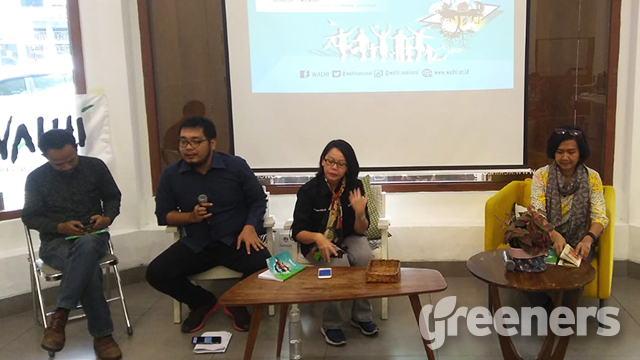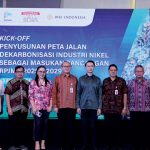Jakarta (Greeners) – Indonesian Forum for the Environment or WALHI, released the 2019 Outlook on environment issues in Indonesia, revealing increasing exploitation of natural resources especially from coal mining and oil palm plantation.
Based on the 2019 Working Plan, Indonesian government is focusing on human resources development and regional distribution to attract economic growth via investment and exports.
Nur Hidayati, Director Executive of WALHI, said that environmental issues and disasters are still the main problems considering the dominance of investment, double-face policies, and poor protection for environmental defenders.
Furthermore, Hidayati also highlights both presidential candidates have yet to push for environment and disasters issues as their campaign priorities.
“We assessed that extractive is still the issue in the future as there are targets to increase coal mining development. This development will still be the government’s choice and coal industry will be the golden child as coal is cheap energy. Despite being cheap is because of social and environmental costs are excluded in the production costs. There are negative external bore by people,” she said in Jakarta on Monday (28/01/2019).
READ ALSO: Environmental Organizations Dropped Questions for Upcoming 2019 Presidential Debate
Furthermore, she said that coal mining is dangerous as it’s the culprit of global warming. In addition, its open mining pits are threatening humans, such as recent case in East Kalimantan claiming the lives of 33 children.
“Those issues that we feared the most, more lives because of this dirty energy development. In addition, post-mining reclamation process which has yet being managed and pollution in mining areas that are never being sanctions,” she said.
Furthermore, she said that the development targeting on increasing of oil palm production by more than two million tons. The target is in line with the target to provide 10.9 million kilo liters of biofuel in 2019 despite concerns that it will clash with the substance of oil palm moratorium presidential decree and ineffective incentive to corporations.
“With the biofuel target for B30, we believe the planning is not based on thorough evaluation. If we see the CPO Fund, all of the funding will go to large companies, especially PT Wilmar. Last year, PT Wilmar received subsidy more than funding submitted for export,” she said.
READ ALSO: Activists Found Illegal Activities in Protected Peats of Central Kalimantan
Khalisah Khalid, head of politics ad-hoc team of WALHI, said that oil palm sector has low compliance to its presidential decree, as there are still forest areas released by ministry of environment and forestry. Hence, WALHI encourages to strengthen the decree.
“Not only [strengthening], but it needs to be in one package with law enforcement, permit audit and permit reviews because this moratorium will give opportunities for forest management,” she said. “If they want to fix it, the policies could no longer be contradictory or aiming for sustainability but still practicing extraction. For coal mining, WALHI suggests to stop dirty energy development and build road map for justice transition. One is by a just renewable energy.”
Report by Dewi Purningsih



















































